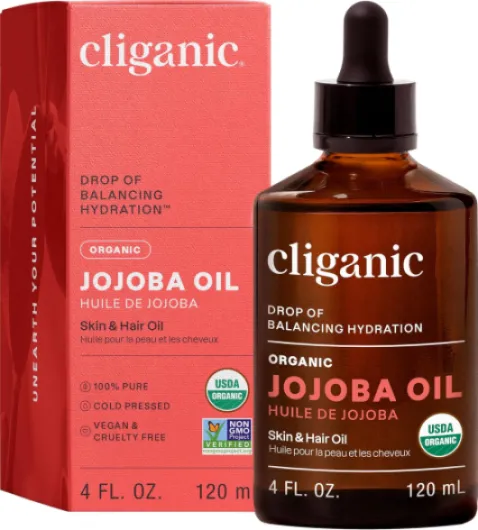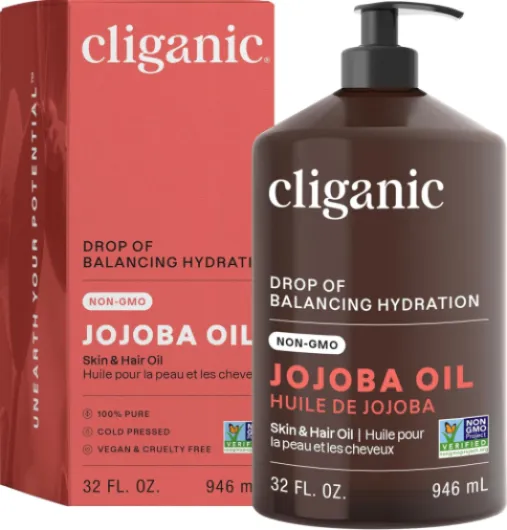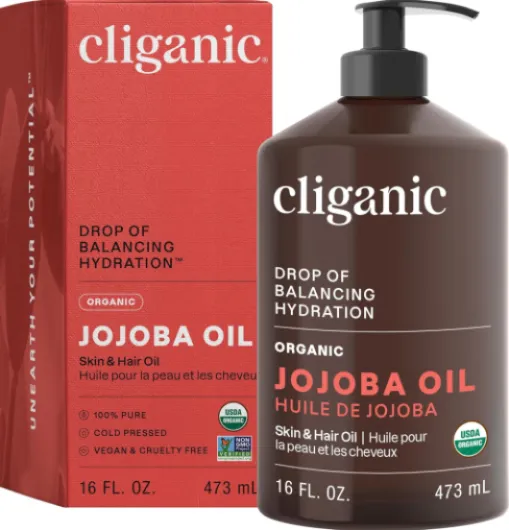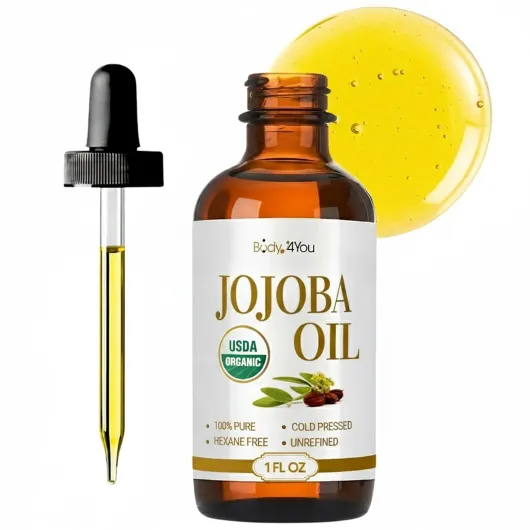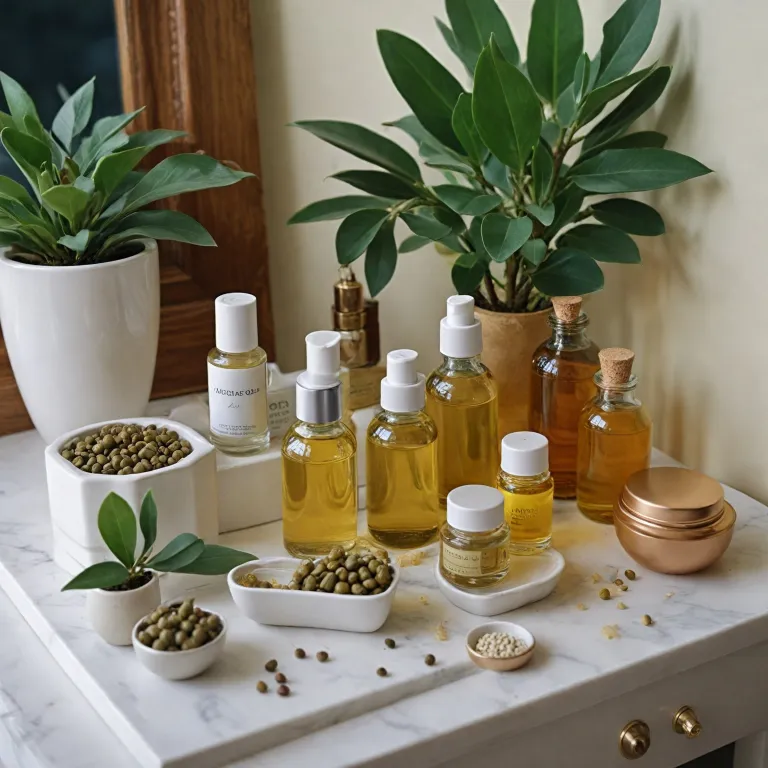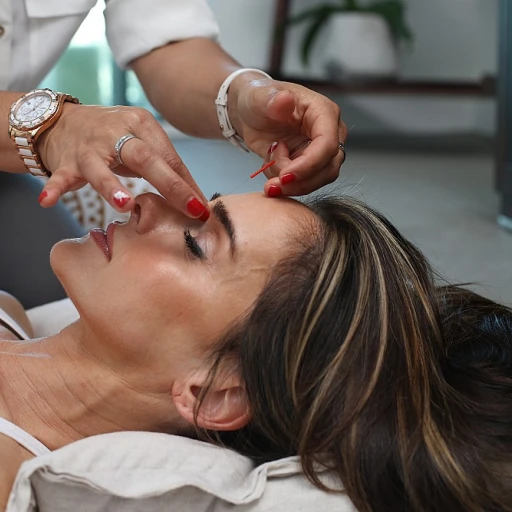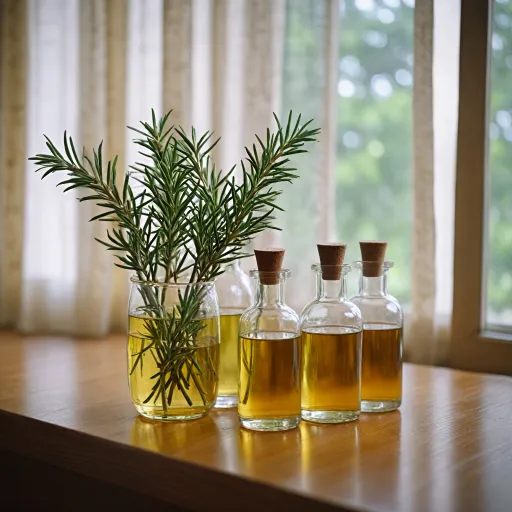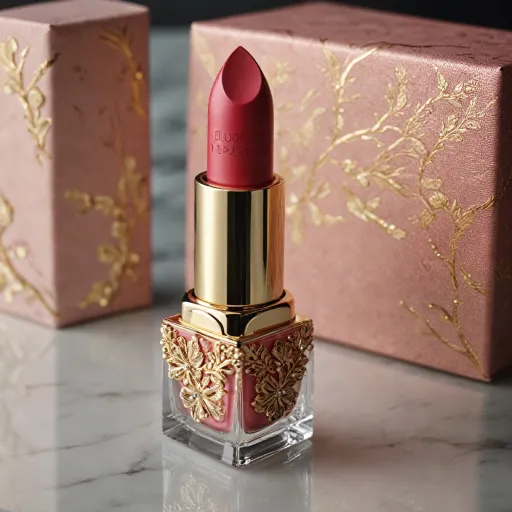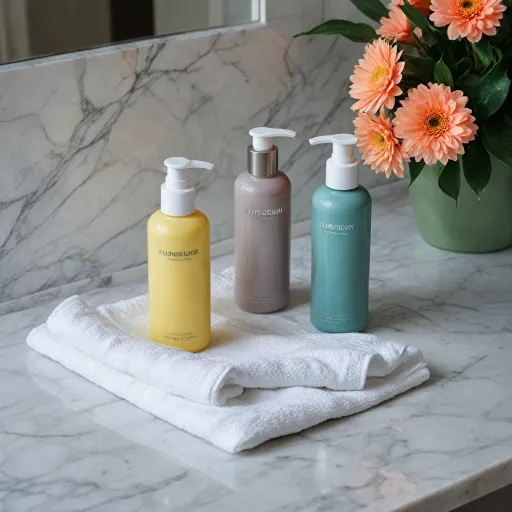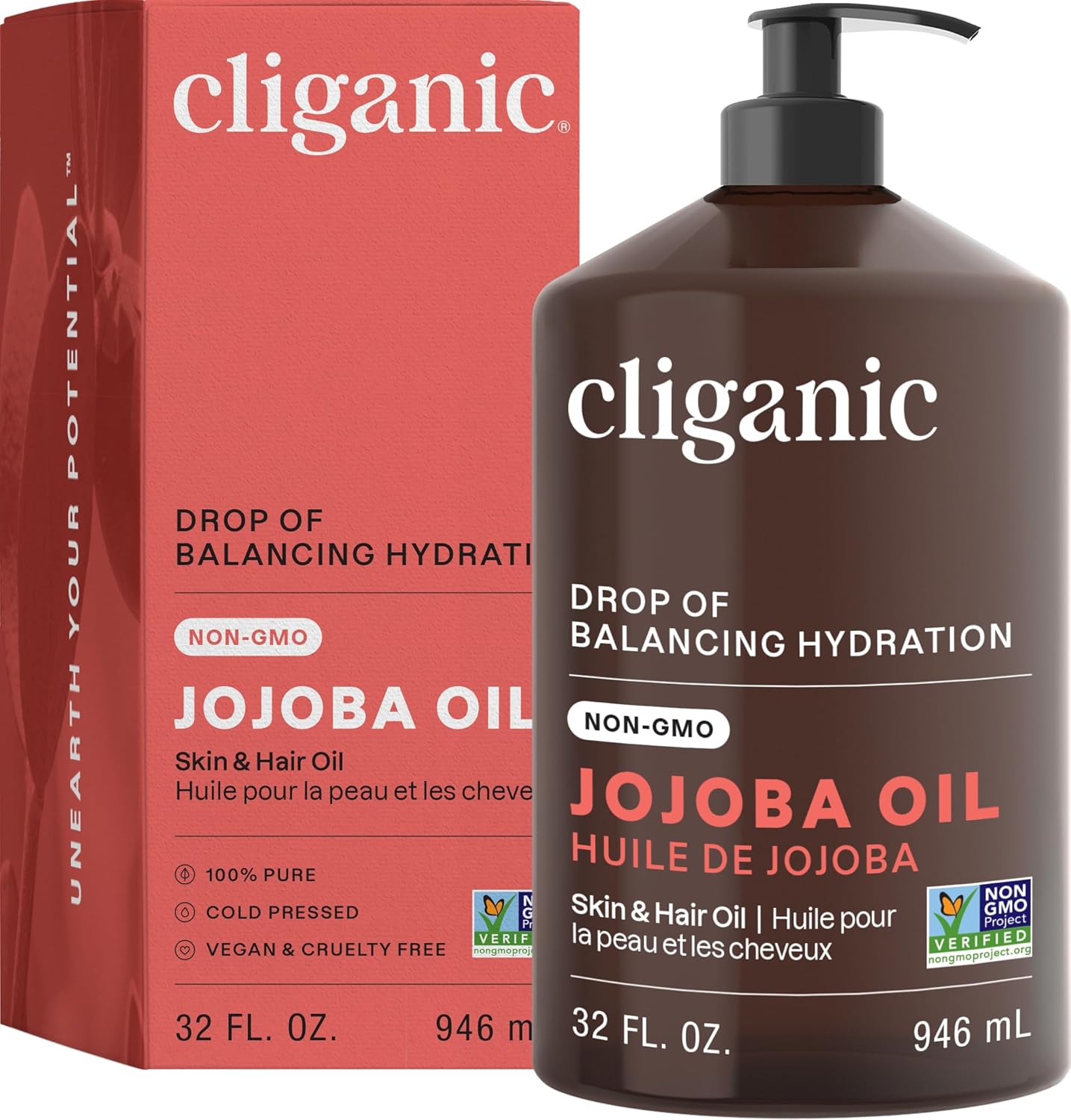-large-teaser.webp)
The Role of Jojoba Oil in Luxury Cosmetics
The Essence of Jojoba Oil in High-End Beauty
Jojoba oil, often celebrated as a liquid wax, is a cornerstone in the realm of luxury cosmetics. Its unique composition, closely resembling the natural oils of our skin, makes it a prized ingredient in both skin care and hair care products. This natural oil is derived from the seeds of the jojoba plant, offering a plethora of benefits that cater to various skin types, including sensitive and acne-prone skin.
In the world of luxury beauty, jojoba oil is cherished for its ability to deeply moisturize without clogging pores, making it ideal for those with sensitive or acne-prone skin. Its non-comedogenic nature ensures that it provides hydration while maintaining a clear complexion. Furthermore, jojoba oil is a staple in hair care, providing nourishment and shine without the greasy residue often associated with other oils.
Luxury brands often incorporate jojoba oil into their formulations due to its long shelf life and stability. Unlike many other oils, jojoba oil does not easily oxidize, which means it retains its efficacy over time, ensuring that the products remain effective and luxurious. This stability is crucial for maintaining the integrity of high-end beauty products, allowing consumers to enjoy the benefits of jojoba oil for years.
As you explore the world of luxury cosmetics, understanding the role of jojoba oil can enhance your appreciation for these products. Its versatility and effectiveness make it a valuable component in any beauty regimen, whether you're seeking to nourish your skin or add a touch of elegance to your hair care routine.
Factors Affecting Jojoba Oil's Shelf Life
Crucial Elements Impacting the Longevity of Jojoba Oil
Understanding the lifespan of jojoba oil in high-end beauty products is essential for anyone who appreciates the meticulous details of luxury cosmetics. The factors affecting its longevity can greatly impact both the efficacy and safety of your favored skincare and hair care products. First and foremost, the purity and processing of the jojoba oil play pivotal roles. High-quality, pure jojoba oil, often celebrated for its liquid wax ester properties, contains minimal impurities that can expedite spoilage. Products from reputable jojoba companies tend to have a longer oil shelf life due to careful extraction and minimal exposure to contaminants. Exposure to light, heat, and air are silent culprits that can diminish the life of jojoba oil. When bottling these luxurious oils, manufacturers generally recommend storing them in dark, cool environments to prevent oxidation. Natural light, especially direct sunlight, speeds up the breakdown of the oil's compounds, affecting its quality and aroma—fundamentally altering the smell and operative benefits of the products. It's crucial to remember that liquid oils, unlike solid ones, have a particular propensity to absorb odors from the surrounding environment. Therefore, tightly sealing the bottles after use is advisable. The presence of water in a product can also catalyze the deterioration process, particularly if it's not meticulously free from impurities. Ultimately, the length of jojoba oil's life, from production to application, is substantially influenced by how these factors are managed. To learn more about preserving your high-end hair care products during travels, explore the elegance of compact hair care bulk travel-size shampoo and conditioner. Investing in the right storage solutions not only protects your investment but also amplifies the beauty benefits offered by top-tier jojoba oil formulations.Signs That Jojoba Oil Has Gone Bad
Recognizing When It's Time to Say Goodbye
Checking the shelf life of your favorite luxury cosmetics containing jojoba oil is vital to ensure they keep delivering the anticipated beauty benefits to your skin and hair. Despite jojoba oil's reputation for longevity, it won't last forever, and expired oils can compromise your skin care routine. Here, we highlight key indicators that signal jojoba oil has passed its prime.
- Change in Smell: Aged jojoba oil may emit a rancid odor, differing significantly from its natural, mild scent. If the aroma becomes pungent or unpleasant, it's a clear sign of oxidation.
- Altered Consistency: Fresh jojoba oil has a smooth, liquid wax texture. Any noticeable thickening or separation may suggest it's time to dispose of your bottle.
- Color Variation: Although jojoba oil naturally exhibits a golden hue, a darkened appearance could indicate it's deteriorated.
- Ineffectiveness: Once a product containing jojoba oil loses its efficacy, such as diminished moisturizing or hair care effects, it's likely expired.
Regularly checking your products for these signs can ensure your luxury cosmetics remain effective and safe for sensitive acne prone skin. Additionally, sourcing from reputable jojoba companies guarantees oils with a longer shelf life. If you've noticed any of these changes, explore organic alternatives that align with your routine. For tailored organic solutions for hair care, these articles are invaluable resources.
Proper Storage Techniques for Jojoba Oil
Storing Jojoba Oil for Optimal Longevity
Proper storage of jojoba oil is crucial to maintaining its long shelf life and ensuring it remains a valuable component in your luxury cosmetics collection. Jojoba oil, often referred to as a liquid wax, is renowned for its stability, but even this resilient oil requires careful handling to preserve its quality.
To store jojoba oil effectively, consider the following tips:
- Avoid Direct Sunlight: Exposure to direct sunlight can degrade the oil, affecting its efficacy in skin and hair care products. Store jojoba oil in a cool, dark place to prevent this.
- Use Dark Bottles: Opt for dark glass bottles to shield the oil from light. This helps in maintaining the oil's natural properties and extending its shelf life.
- Keep Away from Heat: High temperatures can accelerate the breakdown of oils. Ensure your storage area is free from heat sources like radiators or stoves.
- Seal Tightly: Always ensure the bottle is sealed tightly after use. This prevents air and moisture from entering, which can lead to oxidation and spoilage.
- Small Quantities: If possible, purchase jojoba oil in smaller quantities to ensure you use it while it's fresh, especially if you don't use it frequently.
By following these storage techniques, you can maximize the life of your jojoba oil, ensuring it remains a potent and luxurious ingredient in your beauty regimen. Remember, proper storage not only preserves the oil but also enhances the overall quality of your skin care and hair care products.
Impact of Expired Jojoba Oil on Luxury Cosmetics
Understanding the Influence of Expired Jojoba Oil
The integrity of your luxury cosmetics can be significantly impacted by the expiration of jojoba oil, a prevalent element in beauty products due to its liquid wax properties and extensive shelf life. Yet, like other essential oils and plant-based ingredients, jojoba oil's efficacy and quality falter past its prime. When expired, jojoba oil can alter the intended results of skin care and hair care treatments. Products tailored for sensitive acne-prone skin may become less effective or even irritating if the oil's natural properties decompose over time. This degradation may also affect the texture and fragrance, leading to an unpleasant smell upon application. Expired jojoba oil in beauty products does more than just compromise effectiveness—it dulls the luxury experience. A weakened oil can disrupt the harmony of carefully crafted aromas and sensations that premium brands strive to offer. To safeguard the investments made in high-end cosmetics, it's pivotal to monitor the shelf life of the jojoba oil within them. Whether stored in roller ball bottles or more traditional packaging, ensuring freshness is fundamental to maintaining both your collection’s allure and integrity.Alternatives and Solutions for Expired Jojoba Oil
Finding New Paths When Jojoba Oil Expires
In the realm of luxury cosmetics, maintaining the purity and effectiveness of the ingredients is crucial. However, when confronted with expired jojoba oil, which can suffer from the degrading effects discussed earlier, it's essential to explore alternatives. Firstly, gathering information on your product’s ingredients is beneficial. Verify if the expired oil is replaceable with fresher choices. Renowned for its stable shelf life, jojoba oil, when stored correctly, often lasts longer than many oils. Yet, even the well-stored oil can eventually decline. Consider These Alternatives:- Fresh Jojoba Oil: Ensure it’s sourced from a reputable jojoba company and packed in a container that guards against direct sunlight, prolonging its life.
- Essential Oils Mix: Combining oils can enhance or restore your product’s vitality. Essential oils not only bring their unique benefits but can also complement jojoba’s versatility.
- Switch to Water-Based Products: These often have a different preservation mechanism, which may sidestep the challenges faced by oils.

